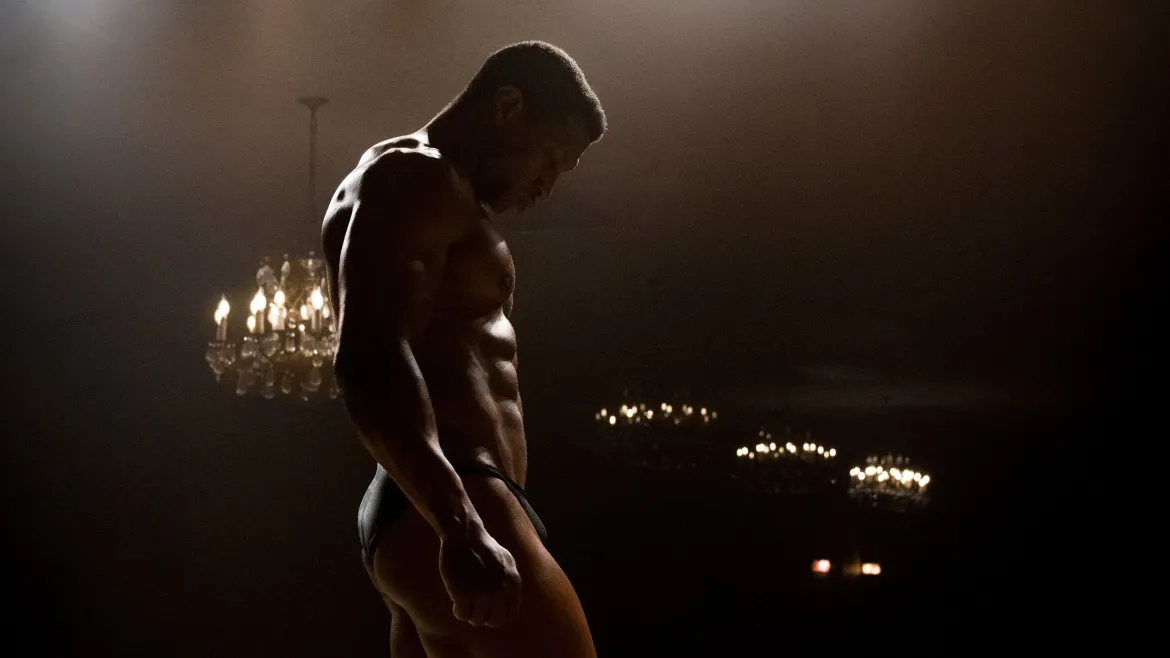Blogs
‘Magazine Dreams’ Review
For better or worse, Magazine Dreams has established itself as one of the Sundance Film Festival’s most talked-about movies. The jurors left the premiere because there wasn’t enough closed captioning. With a performance that received universal acclaim, lead actor Jonathan Majors’ growing career is also continuing to soar. The movie itself has somehow escaped serious inspection behind the publicity frenzy. Because Magazine Dreams is a horribly flawed project that wallows in agony to the point of ridicule, it may be for the best for the filmmakers. Yet it’s the kind of swing for the fences that you can’t take your eyes off of.
In his second film, Hot Summer Nights writer-director Elijah Bynum immerses viewers in the thoughts of aspiring bodybuilder Killian Maddox (Jonathan Majors). When he’s not working at a grocery store to help support his frail grandfather (Harrison Page), the actor is doing everything in his power to build strength and heft. He shoots steroids, eats a lot of certain meals that provide thousands of calories each day, and has a single-minded focus on being on the cover of a magazine. His obsessional frustrations begin to bubble beneath the surface, growing into a wrath. Killian reaches a breaking point where he can no longer recover due to his incapacity to communicate with others and his deteriorating mental and physical health.
One is hesitant to claim that Magazine Dreams is heavily influenced by Taxi Driver. More correctly, it’s a little bit of a scam. Here, Killian’s hallucinations take center stage as his grandiose fantasies contaminate his reasoning. Even his letters to Mike O’Hearn’s Brad Vanderhorn, his favorite bodybuilder, serve as a sort of chronicle for him. There is nothing wrong with adapting an established recipe for a different purpose. The issue is that while Elijah Bynum’s picture is a blunt instrument designed to beat the audience in the face with how dark and awful the movie’s universe is, Martin Scorsese’s movie succeeds because of its moderation. The film makes some attempts to address societal issues, such as toxic masculinity and the black experience in America, but they are completely stifled by the repressive tone of the picture.
Fair enough, Magazine Dreams does create a lot of tension. The movie is flawless in terms of its technical aspects. Cinematographer Adam Arkapaw (True Detective) creates sharp images that will undoubtedly be catnip for budding cinephiles eager to gawk at frames drenched in perfectly considered neon and shadow. The thumping soundtrack, which includes everything from the original score of Jason Hill (Mindhunter) to diegetic metal, pop, and rap music, locks into the audience’s heart rate and elevates it. Regardless of how the movie as a whole turns out, scenes like Killian destroying a company he believed had harmed his grandpa are terrifying. It’s impossible to not be on the verge of your seat.
That’s not necessarily a good thing, of course. There is no doubting how much acting Jonathan Majors is doing in this film. In every way imaginable, he really goes all in. Unfortunately, that involves an endless stream of screaming scenes and the strange decision to portray his character as maybe mentally challenged. Killian is a tornado that is destroying everything in his path. A dimension of humanity is what Majors neglects to include in this film, with the exception of a few admittedly vital passages. For a flashy script, it’s a flashy performance. In exchange for attention, deeper understanding is lost.
The character of Killian Maddox actually gives off an almost exploitative vibe, as if Magazine Dreams wants viewers to gaze at Killian rather than try to comprehend him. He has the personality of a wrecking ball. His relationships with women, whether they be his employee Jessie (Haley Bennett), his therapist (Harriet Sansom Harris), or a prostitute (Taylour Paige), are portrayed in a way that is meant to make the viewer feel uncomfortable. If you’re attempting to create a character akin to Travis Bickle, you must keep in mind that part of what made him frightening was the way the darkness crept up on him gradually. In every scene of this film, Killian is shown to have a serious medical condition.
That might be a strategy that succeeds. Nevertheless, when the movie’s second half begins, things start to spiral out of control. The movie enters unrecoverable terrain after a string of terribly awful occurrences. Jaws will probably drop when real-life tragedies are echoed in the story. In terms of how much they can heap on this man, the sense of dread keeps getting more and more overwhelming to the point where it ceases to be tragic and nearly turns darkly hilarious. It’s hard to tell if the massive, spectacular collapse in the diner was even somewhat intended to cause laughter. It comes across as tacky, with the type of “look at me, I’m insane!” sequence that some anticipated Joker, the 2019 take on Taxi Driver, to have.
Nonetheless, it’s difficult to deny that Magazine Dreams has a distinctive intensity if scenes like a truly terrifying confrontation set to “Because the Night” by Patti Smith occur. Jonathan Majors’ performance will unquestionably be remembered, so there might even be something to it. A filmmaker with undeniable skill, Elijah Bynum. Regardless of whether Magazine Dreams accomplishes what it sets out to do, it is a provocative piece. Even if it is perplexing, it will spur discussion for a very long time. Because experiencing something so unique is something to be delighted in, despite the fact that it may dramatically fall short.
>>>> READ MORE: ‘Air’ Review – Ben Affleck Returns to Directing with Certified Crowd

